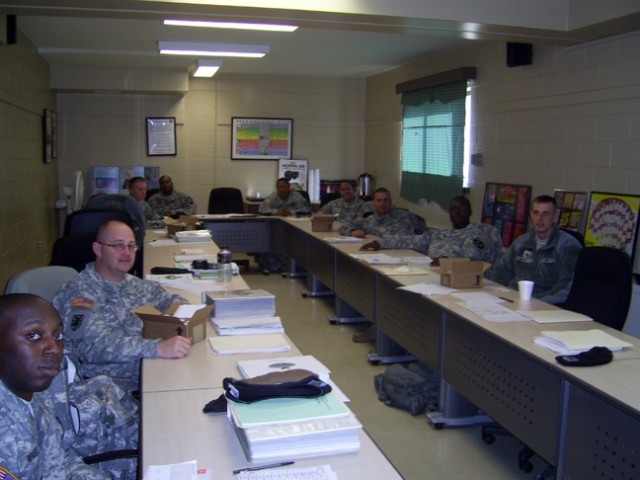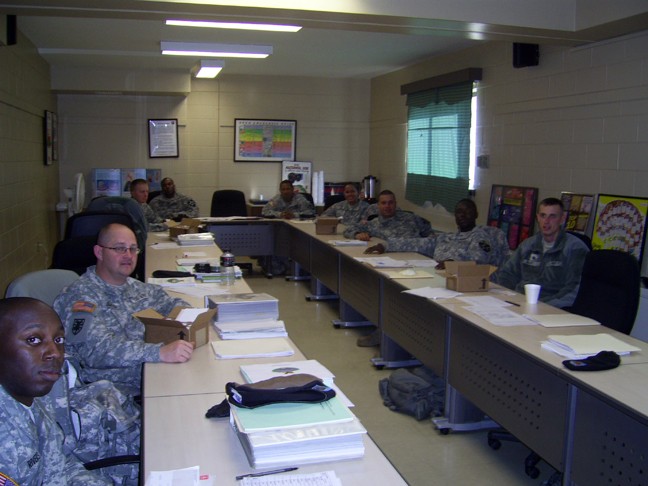
CASEY GARRISON South Korea - In keeping with the Army Family Covenant, the Army provides the Alcohol and Substance Abuse Program to help Soldiers struggling with all kinds of substance abuse including alcohol and drugs, illicit and over-the-counter. There are five components of ASAP: prevention and outreach, risk reduction, testing, treatment and rehabilitation, and suicide prevention.
For the treatment and rehabilitation component, once a Soldier shows positive results from a urinalysis test, it is returned to the Alcohol and Drug Control Officer, Wayne Johnson, who notifies the commanders if there are any positive results found by the tests.
"If a positive result is showing a prescription medication, it goes to the medical review officer," Johnson said. "This officer rules whether or not the drug was issued legally. Controlled substance drugs do not require a MRO review, only prescription drugs require this review."
When a Soldier is found positive for illegal drug use, two separate things happen: a CID investigation and a referral to ASAP for treatment. When he or she arrives at the ASAP office he/she will begin evaluations to determine the specific treatment needed.
"The Soldier will come to us with a form DA 8003 signed by his commander or first sergeant," said Brenda Kittrell, clinical director for garrison ASAP. "The form will have a check mark indicating a positive bio-chemical urine analysis."
Once the Soldier hands in his DA 8003, he will be given a stack of forms to fill out called an intake packet. After he/she fills out the packet materials, they will go over the items in a screening process to make sure everything is in order.
"We will also determine if the person will need to see the psychiatrist," Kittrell said, "he/she may have suicidal or homicidal ideations, in which case they would be immediately referred to the psychiatrist."
Once the Soldier is found not to have homicidal or suicidal ideations, they are scheduled to have an appointment within seven days for a full assessment.
"During an assessment the Soldier sits down with a counselor for approximately an hour and a half to go over everything they wrote in their intake packet," Kittrell said. "He will talk about his history and his family's history, military history, to include everything that has been going on in his life, and if he has been enrolled in our program before."
Many incidents in a Soldiers life will flag the counselor's interest. Incidents like being drunk in public, underage drinking, charges for driving a vehicle under the influence of alcohol or drugs, and whether or not they had this behavior before coming to the military. Any previous incidents involving alcohol or drugs will flag the interest of the counselor.
"After the full assessment, they will have a rehabilitation team meeting," Kittrell said. "This meeting includes the commander, Soldier and counselor. This is when the commander can tell us if he knows of anything that is going on in the command with the Soldier that would not normally be mentioned. Many will put down the fact they have had drug problems before they came to the military. Once we have this meeting, the truth will come out about the Soldiers background."
The Soldier's commander or first sergeants are the only ones who can enroll them in ASAP treatment programs.
"Once they are enrolled they will start attending group and individual treatment," Kittrell said. "Group treatment is usually once a week for an hour and a half; this is where they start being truthful with themselves and each other. This is when the counselor finds out what has really been going on in their lives over a period of time. This is why we ask the commander to enroll them for a minimum of 90 days."
Kittrell will go over all her cases with the clinical psychiatrist once a week. The clinical psychiatrist can refer Soldiers to ASAP and vice versa.
"At the end of the first 90 day period, there will be another rehabilitation team meeting," Kittrell said. "The commander or first sergeant will come over along with the Soldier and the counselor to discuss whether or not the Soldier is improving, should stay in the program, or be released."
If the Soldier stays clean for 90 days during the program, he is usually released, Kittrell explained.

Social Sharing